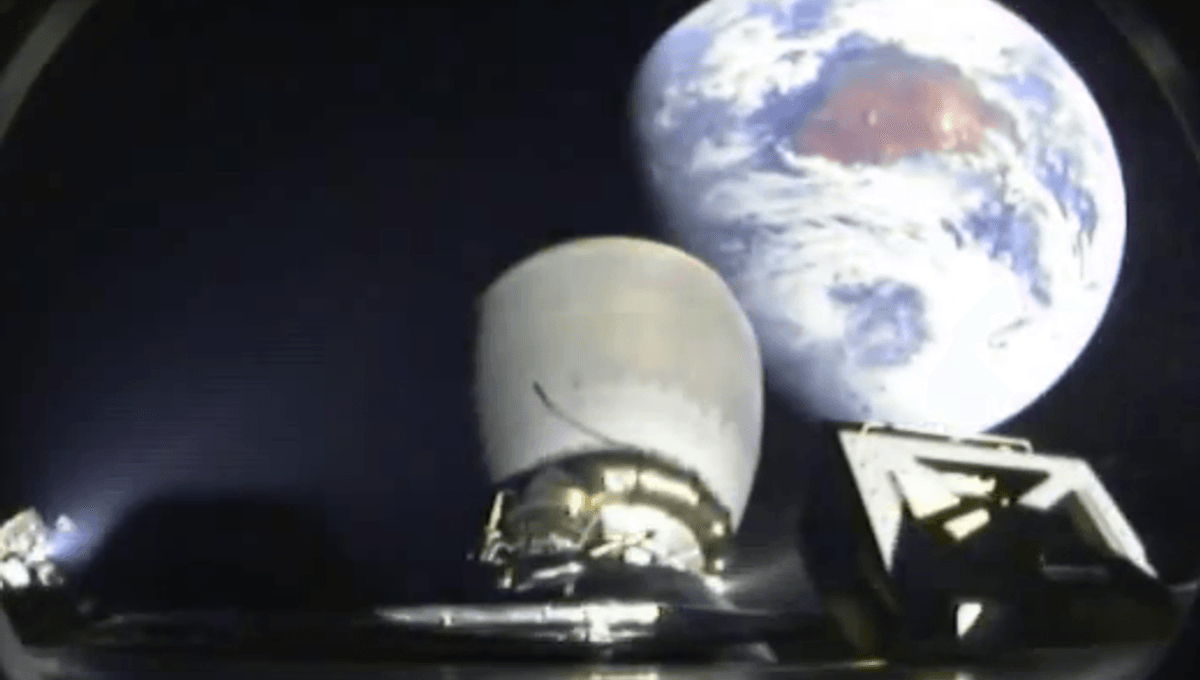
On Monday (June 23), Elon Musk’s SpaceX launched its Falcon 9 rocket into low-Earth orbit from the Space Launch Complex at Vandenberg Space Force Base in California. The dedicated rideshare mission contained 70 payloads, including a few unusual and notable experiments, as well as human remains. Unfortunately for researchers and families of the deceased, the mission was not a complete success, and both cannabis and human remains are now missing and presumed lost.
Traveling inside one of the payloads, Genoplant’s biological incubator – MayaSat-1 – were over 980 biological samples to be put into an unusual low-Earth orbit, taking it over the planet’s poles.
“Once in space, the Falcon 9 will deploy [the Mission Possible re-entry capsule] into low Earth orbit at an altitude above 500 km, where it will complete three orbits, passing through charged polar zones,” Genoplant explained ahead of the mission. “After completing its orbit, the capsule will re-enter Earth’s atmosphere and perform a splashdown near Hawaii. A rescue team will retrieve the capsule, securing the samples for in-depth post-mission analysis.”
Along with other experiments aimed at assessing the impact of radiation on biological systems was an interesting payload from open-source citizen science project Martian Grow. This crowdfunded project, which says it aims to “break down the walls, challenge the gatekeepers, and democratize science—not for profit, but for the pursuit of knowledge itself” placed cannabis seeds and plant matter into the incubator.
“Cannabis is resilient, multipurpose, and biologically complex,” the project explains in its website, “making it ideal for studying how life adapts to extreme environments like space or Mars.”
This isn’t the first time that cannabis has been sent into space. No, despite Internet rumors, astronauts on the International Space Station (ISS) are not up there ripping bongs. But in 2019, plant matter was sent to the ISS for study.
“On Earth, plants are constantly working to defy gravity in order to rise above the ground, but since they were not utilizing this energy in zero-gravity conditions, we were able to observe where different biological changes started to occur,” Dr Jonathan Vaught, CEO of hemp and cannabis genetics platform company Front Range Biosciences, explained to Boulder Weekly in 2021. “The results of the research could help growers and scientists identify new varieties or chemical expressions in the plant.”
Unfortunately, as so often happens in space travel, Monday’s mission did not go entirely to plan.
“Our spacecraft Mission Possible achieved partial success (partial failure),” The Exploration Company explained in a statement.
“The capsule was launched successfully, powered the payloads nominally in-orbit, stabilized itself after separation with the launcher, re-entered and re-established communication after black out. But it encountered an issue afterwards, based on our current best knowledge, and we lost communication a few minutes before splash down. We are still investigating the root causes and will share more information soon,” the company added. “We apologize to all our clients who entrusted us with their payloads.”
That means space cannabis is somewhere on the planet (and likely in the ocean), though we don’t quite know where.
Among other payloads delivered by SpaceX was one by space-burial company Celestis. The company sends human remains into space, and was responsible for sending hair from four US presidents into space in 2023. This latest mission was supposed to be the first to return human remains to families after they had orbited the Earth, but unfortunately, the payload suffered the same fate as the space cannabis.
“The Perseverance Flight carrying the ashes and DNA of 166 participants successfully launched and reached orbit today, Monday, June 23, 2025 aboard The Exploration Company’s Nyx Mission Possible spacecraft,” Celestis said in a statement.
“The spacecraft completed two orbits around Earth, meeting our criteria for a successful Earth Orbit service, and then initiated its return trajectory, as planned, to complete the Earth Rise service intended. However, we regret to share that an anomaly occurred during reentry, specifically, the parachute system failed, resulting in the Nyx capsule impacting the Pacific Ocean and dispersing its contents at sea.”
“As a result of this unforeseen event, we believe that we will not be able to recover or return the flight capsules aboard. We share in the disappointment of our families, and we offer our sincerest gratitude for their trust.”
The team says that they will reach out to family members in the coming days.
“Though we currently believe that we cannot return the flight capsules,” they add, “we hope families will find some peace in knowing their loved ones were part of a historic journey, launched into space, orbited Earth, and are now resting in the vastness of the Pacific, akin to a traditional and honored sea scattering.”
Source Link: Cannabis And Human Remains Sent To Space Go Missing After Returning To Earth On SpaceX Mission